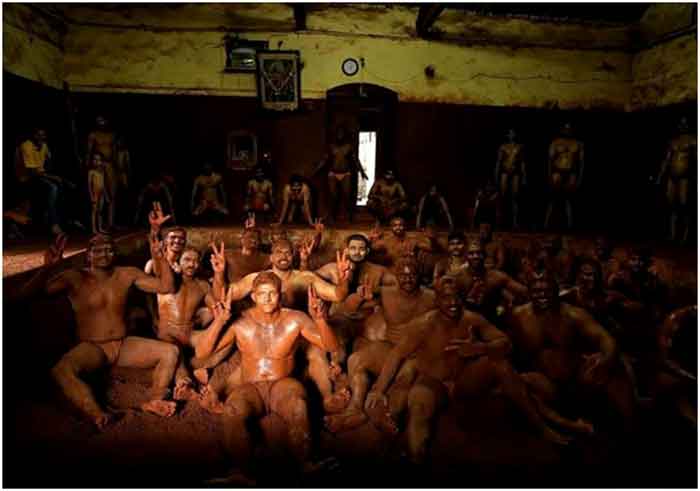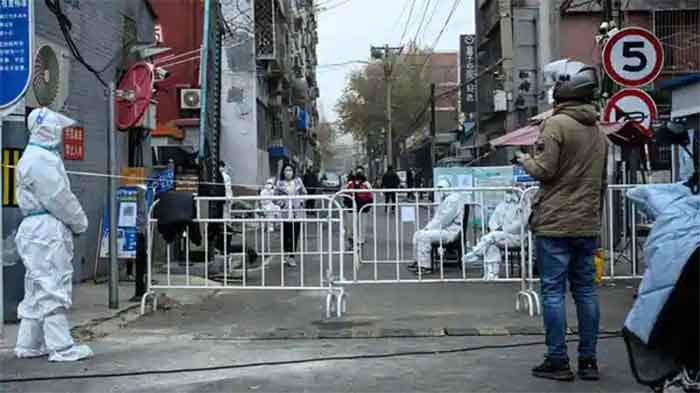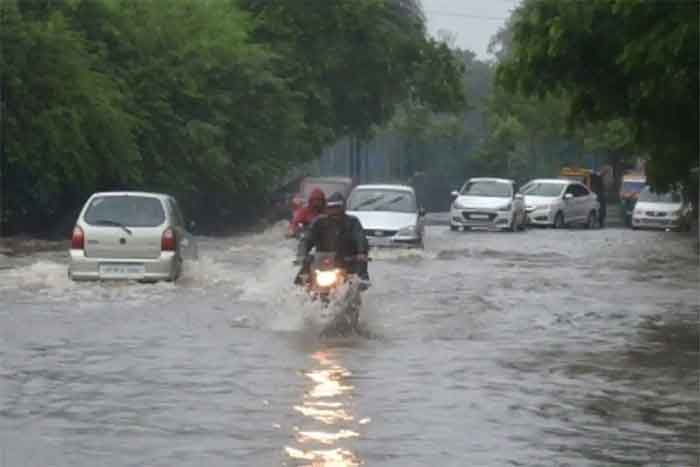
Pune (Maharashtra): For decades, the second week of March has marked the start of the popular traditional wrestling season, that attract hundreds of participants and big audiences in the villages of western Maharashtra.
Held as part of travelling fairs, that also include folk theater and music performances such as tamasha and lavani, farming communities look forward eagerly to watching the wrestling competitions.
But, for the second year in a row the fairs have been cancelled and the wrestling arenas in the region have remained shut as the players themselves grapple with the deadly impact of Covid-19.
“The Covid pandemic has disrupted two successive seasons of wrestling competitions and the earnings of wrestlers in the region have dropped dramatically” says Mauli a wrestler from a rural family in Pandharpur, who has dedicated his life to the sport.
The 26-year-old is a former winner of the ‘Maharashtra Kesari’, a prestigious wrestling title, and was trained at the century old ‘Shri Shahu Vijayi Kushti Gangavesh Talim Akhara’ located in Kolhapur.
According to Mauli, if a wrestler wants to become a winner in any big wrestling competition he needs to spend between fifteen to twenty thousand rupees a month on his diet and practice. Right now, most wrestlers are finding it difficult to earn their daily bread.
Traditional wrestling, which is played on red soil, attracts children from farming families of western Maharashtra, some of whom take up the sport as a life-long career.
Before the coming of the pandemic in early 2020 Mauli and about 150 wrestlers like him used to regularly train, practice their moves and exercise every day from morning till late in the evening. Their dream was to become national and international level wrestlers. These days though, there is an eerie silence at training centers all across the region.
 Although some wrestlers have been practicing through their own individual efforts during this period, the large number of training camps that used to operate in the region have completely disappeared. There are around sixty to seventy red soil grounds exclusively meant for wrestling in Sangli district alone, where no major events have been held for the past several months, with wrestlers unable to rehearse or undergo training.
Although some wrestlers have been practicing through their own individual efforts during this period, the large number of training camps that used to operate in the region have completely disappeared. There are around sixty to seventy red soil grounds exclusively meant for wrestling in Sangli district alone, where no major events have been held for the past several months, with wrestlers unable to rehearse or undergo training.
“The closure of wrestling grounds in many villages has created a tension among the wrestlers. All their exercises and workouts have also come to a standstill. Even in small villages more than a hundred children used to come to get trained every year” says Molly Jamade, the director and trainer of a wrestling competition in Kolhapur.
In the last year and a half, while incomes have gone down the cost of living has also gone up for everyone.
“Nothing is cheap. Wrestlers need additional nutrition and while I get milk from the buffalo at home I cannot afford to buy any other nutritious product” laments Bharat Patil, a wrestler from Shirod village. “I work in the fields of big landlords just to survive and eat a normal diet these days’ he adds.
Standing outside his wrestling arena, Mauli shares his pain and says that this was the place where wrestlers used to jostle on the red soil, swing heavy maces with their hands, thrash and spar against each other. In the last one year many wrestlers, he says, have become weak and even sick due to lack of good food and regular training.
“The most important thing for any wrestler is his physique, but without good diet and exercise for many months, our bodies start breaking down” he explains.
Given the strenuous physical effort required by the sport, it is important for wrestlers to make a mark before they cross the age of thirty. Currently, many wrestlers are sitting idle and going through a big crisis in their lives. Morale is also down and many wrestlers do not show the same enthusiasm as before.
Wrestling, apart from being a popular sport, is also a source of livelihood for large numbers of people in the area. According to Arun Bogarde, a wrestler from Sangli and a leading contenders for the ‘Maharashtra Kesari’ title, in a normal year, the business of traditional wrestling has a turnover of Rs.150 million to Rs 200 million.
In 2019 also, wrestlers and operators associated with the sport had to face a financial crisis due to the catastrophic floods in the Krishna and Varana rivers of Sangli district that brought wrestling activities to a standstill. Chincholi, Vita, Padli, Benapur and Khawaspur are the main towns in Sangli district, where wrestling competitions are held regularly.
“Wrestling is a sport mainly for the children from poor families. Many of them have invested their lives in wrestling and it will become very difficult for them if the competitions do not revive in the coming days,” says Appasaheb Kadam, also a former winner of the ‘Maharashtra Kesari’.
There are various economic calculations of both individual wrestlers and tournament organizers that drive the business of traditional wrestling in the Sangli and Kolhapur region. For example, wrestlers practice throughout the year, spending their own money, with the hope of winning a prestigious competition. Winning such titles helps them get new disciples and set up a good career as a reputed wrestling coach. Apart from the winners, even the defeated wrestlers get some money in the wrestling competitions, which they use to continue practice wrestling.
The wrestling competitions every year also generate enough money to set aside funds to organize the subsequent year’s events too. The two-year break has depleted the ability of local organizers to resume the sport any time soon.
Mauli feels that the Maharashtra government should provide some financial help for wrestlers like him, as they prepare for the Senior National Wrestling Championship to be held in November 2021.
There is a smile of hope on his face as he says, “If I win, it will bring glory to all of Maharashtra!”
Shirish Khare has been associated with rural journalism for a long time and has been continuously reporting on the economic, social and health impacts of rural life during the Corona pandemic.
GET COUNTERCURRENTS DAILY NEWSLETTER STRAIGHT TO YOUR INBOX















































